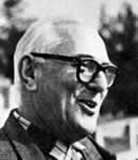José Pedroni
José Bartholomew Pedroni Fantino (September 21, 1899 - 4 February 1968) was an Argentine poet.

Biography
José Pedroni was born in the city of Gálvez, Santa Fe province in Argentina, son of Gaspar Pedroni and Felisa Fantino. However, his place of residence for most of his life was the city of Esperanza in the same province of Santa Fe, his adopted and which writes most part of his poetic work.
He married Elena Chautemps on 27 March 1920. They had four children. His last child and only daughter, Ana Maria Pedroni is also a writer living in Guatemala.
His death by cardiac decompensation, took him by surprise in the city of Mar del Plata province of Buenos Aires, Argentina in 1968.
Poetic work
His poems include "La gota de agua" ("The drop of water") (1923), "Gracia plena" ("Grace Full") (1925), "Poemas y palabras" ("Poems and words") (1935), "Diez Mujeres" ("Ten Women") (1937), "El pan nuestro" ("The bread and butter") (1941), "Nueve cantos" ("Nine songs") (1944), "Monsieur Jaquín" (1956), "Cantos del hombre" ("Songs of Man") y "Canto a Cuba" ("Singing to Cuba") (1960), "La hoja voladora" ("flying leaf") (1961), "El nivel y su lágrima" ("The level and tear") (1963).
Centenary of his birth
It has always been considered the highest literary figure of the city of Santa Fe Esperanza, whose community has honored and remembered on many occasions. In 1999, on the occasion of the centenary of his birth, on 21 September, a Tribute Committee carries out various activities to remember the poet. In particular, a special publication of the newspaper The West Settler by Esperanza, developed by Professor Nelly Morandi Müller, which chronicles his life through his own poetic work, enriching the story with multiple photographic images that reflect different stages of the life of José Pedroni, from his private collection which were presented by the poet's family.
José Pedroni Blog & Website
José Pedroni Blog José Pedroni Website